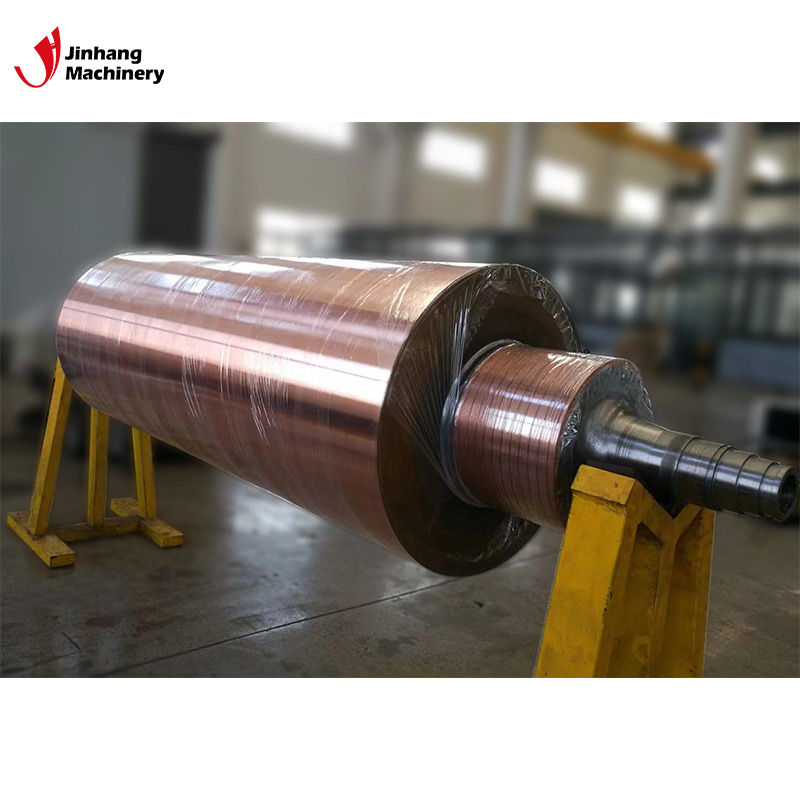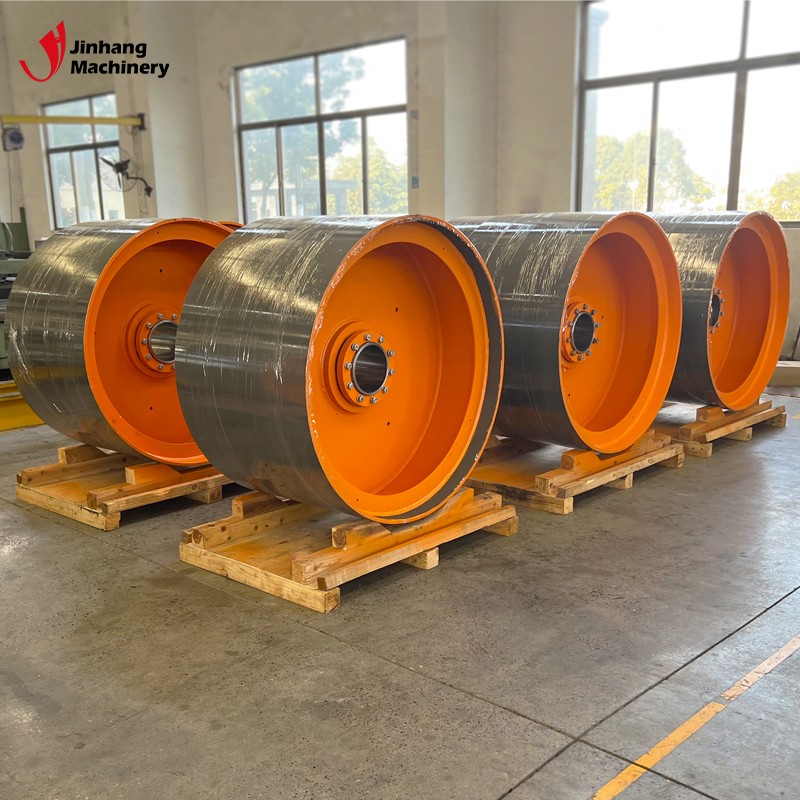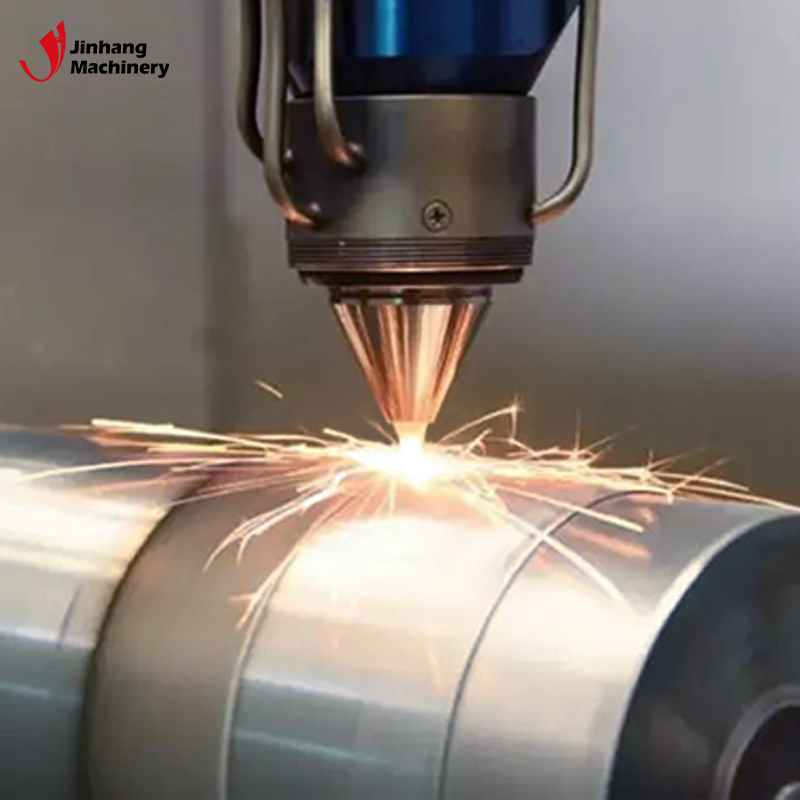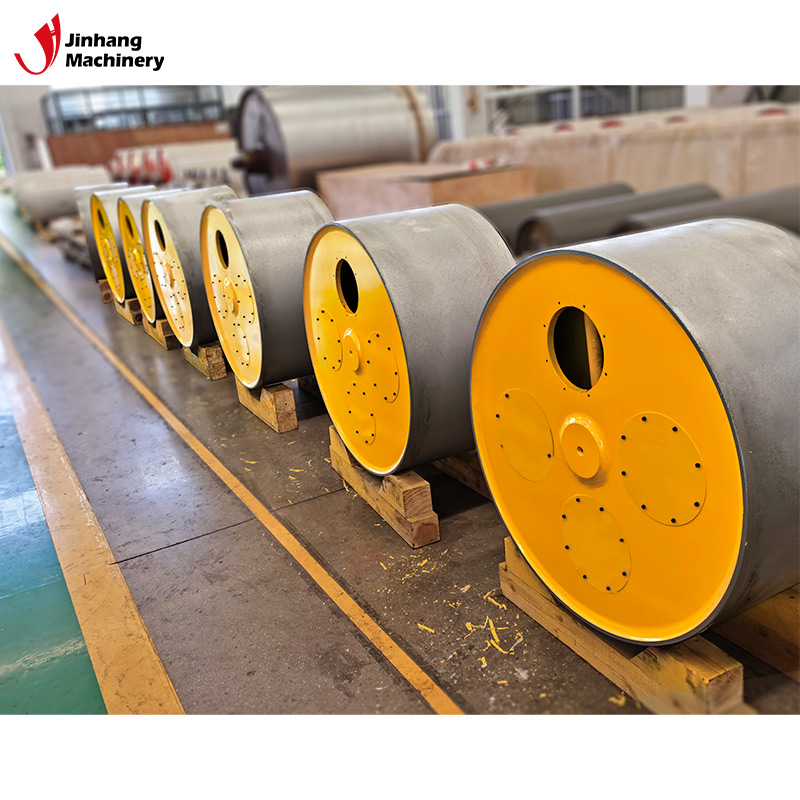What are the Pros and Cons of tungsten carbide rollers?
As a high-performance industrial material, tungsten carbide rolls are widely used in the rolling and processing of metals such as steel, aluminum alloys, and copper alloys. They are favored by many manufacturing and heavy industrial fields due to their excellent wear resistance, hardness, and high temperature resistance. However, despite the many unique Pros of tungsten carbide rolls, they also have certain limitations. In high-intensity industrial applications, understanding the Pros and Cons of tungsten carbide rollers is crucial for the rational selection and use of this material.
This article will deeply analyze the Pros and Cons of tungsten carbide rollers, explore its applicability in different industrial scenarios, and help practitioners in related fields better understand the performance characteristics of this material.

What are the Pros of tungsten carbide rollers?
Pros of tungsten carbide rollers:
1. Extremely high hardness and wear resistance
2. Good thermal stability and high temperature resistance
3. Excellent corrosion resistance and chemical stability
4. Strong impact resistance and fatigue resistance
5. Precision machining and high surface quality
1. Extremely high hardness and wear resistance
The hardness of tungsten carbide is second only to diamond among all metal materials. Its Vickers hardness (HV) can reach 2000-3000 and Rockwell hardness (HRC) can reach between 70-80. Due to this extremely high hardness, tungsten carbide rollers have excellent wear resistance. Compared with traditional steel rollers or cast iron rollers, tungsten carbide rollers can perform more stably and durable under extreme friction and wear conditions.
In heavy-duty industrial processes such as rolling and casting, rollers often need to withstand long-term high-intensity friction. Tungsten carbide rolls can effectively reduce roller wear, increase the service life of equipment, and reduce the cost of frequent roller replacement during production.
2. Good thermal stability and high temperature resistance
Tungsten carbide has an extremely high melting point (2870℃), which is much higher than many metal materials. This allows tungsten carbide rollers to work stably for a long time in high temperature environments, and is particularly suitable for processing processes such as high temperature rolling or high temperature casting. For example, in the steel rolling process, tungsten carbide rollers can withstand extremely high processing temperatures without being easily deformed or softened.
This excellent thermal stability enables tungsten carbide rolls to perform well under many high temperature and high pressure conditions, and to maintain stable performance for a long time in extreme working environments.
3. Excellent corrosion resistance and chemical stability
Tungsten carbide has strong chemical stability and can remain stable and resist corrosion in most acid and alkali environments. In some industrial environments that require high corrosion resistance, tungsten carbide rolls show strong adaptability. For example, in the processing of certain acidic or alkaline media, tungsten carbide rollers can resist wear caused by chemical reactions, thereby extending the service life of the rollers.
This corrosion resistance makes tungsten carbide rolls an ideal tool material for some special industries, such as chemical, mining and metallurgical industries.

4. Strong impact resistance and fatigue resistance
Although tungsten carbide has a very high hardness, it is combined with a small amount of metal elements (such as cobalt, nickel, etc.), which enhances its impact resistance and fatigue resistance. In some applications that need to withstand large impact loads, tungsten carbide rollers show relatively good impact resistance and can avoid breakage or damage under high pressure, vibration and other working conditions.
The impact resistance and fatigue resistance of tungsten carbide rollers make them widely applicable in applications requiring high-intensity working conditions.
5. Precision machining and high surface quality
Due to the hardness and wear resistance of tungsten carbide, tungsten carbide rollers can maintain long-term stable dimensional accuracy. It can maintain a high surface quality during the machining process, which is particularly suitable for occasions with high-precision machining requirements. For example, during the cold rolling process of metal, tungsten carbide rollers can maintain a low surface roughness, ensuring the quality and precision of the final product.
The surface smoothness of tungsten carbide rolls also helps to reduce the friction of materials on the roller surface and improve production efficiency.

What are the Cons of tungsten carbide rollers?
Although tungsten carbide rolls have many Pros, they also have some Cons that cannot be ignored. These Cons limit their wide application under certain working conditions.
Cons of tungsten carbide rollers:
1. Brittle and prone to fracture
2. High cost
3. Difficult to process
4. Affected by high temperature
5. Affected by the external environment
1. Brittle and prone to fracture
Although tungsten carbide has extremely high hardness, it is brittle in itself, especially under the stress of impact, vibration, etc., it is easy to break or shatter. This is a significant disadvantage of tungsten carbide materials. In some industrial environments with severe impact or high-load vibration, tungsten carbide rollers may not be able to be used stably for a long time due to their brittleness and are prone to accidental damage.
Therefore, although tungsten carbide rollers perform well in many low-impact and high-wear resistance occasions, they still need to be used with caution under certain high-impact loads.
2. High cost
The production process of tungsten carbide is complex and costly, mainly reflected in the procurement and processing of raw materials. The prices of metals such as tungsten and cobalt are relatively expensive, and the manufacturing process of tungsten carbide materials usually requires complex processes such as high-temperature sintering and powder metallurgy, which all lead to the high production cost of tungsten carbide rollers. Especially in some cost-sensitive industrial fields, the use of tungsten carbide rollers may increase the overall production cost.
In addition, the processing of tungsten carbide rollers requires the use of high-precision equipment. Due to the high hardness, the wear on the equipment is also greater, which further increases the production cost.
3. Difficult processing
Due to the extremely high hardness of tungsten carbide, it is also difficult to process. The processing of tungsten carbide rolls requires particularly strong tools and high-precision processing equipment, and high wear may occur during the processing. This means that the manufacturing process of tungsten carbide rolls is more complicated than rollers made of other materials and consumes more production resources.
In addition, since the processing of tungsten carbide requires special technology and equipment, it is relatively difficult to customize and mass-produce tungsten carbide rolls, which also limits its application in some fields.
4. Affected by high temperature
Although tungsten carbide has good stability at high temperatures, its performance will still be reduced if it is used at too high temperatures. For example, at temperatures above 3000°C, tungsten carbide may undergo phase changes, resulting in a decrease in hardness and an increase in brittleness, which affects its performance. Therefore, in some extreme high temperature environments, the use of tungsten carbide rollers is not ideal.
In high temperature environments, it may be necessary to combine other materials to optimize the high temperature resistance of tungsten carbide rolls, or to strictly control temperature conditions during use.
5. Affected by the external environment
Although tungsten carbide rolls have strong corrosion resistance, they may still be affected to a certain extent in extreme environmental conditions, such as strong acid, strong alkali, high temperature and other harsh working conditions. Especially in the environment of extremely high temperature or strong chemical corrosion, the performance and life of tungsten carbide rollers will be weakened. Therefore, in these environments, it may be necessary to choose other more corrosion-resistant materials to replace tungsten carbide rolls.

Buy Custom Industrial Rolls with Full Warranty & Expert After-Sales
At JH Machinery, we manufacture high-quality, custom industrial rolls that meet your exact specifications. Our rolls include rubber, polyurethane, heating, cooling, and mirror-finished types. We pride ourselves on precision manufacturing using CNC machines and imported grinding equipment.
Buy from us directly and benefit from our low-price advantage, bulk order discounts, and reliable after-sales support. Contact us today to get your quote and promotional offers!
